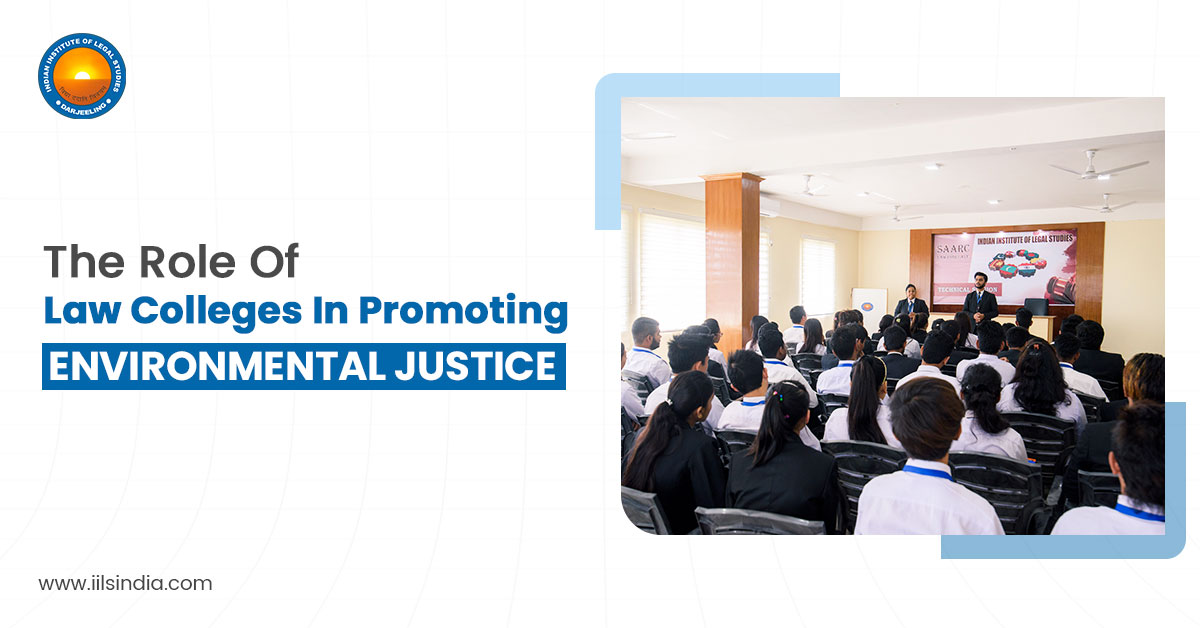Environmental justice is an increasingly critical issue as communities worldwide face the devastating impacts of climate change, pollution, and resource exploitation. These environmental challenges often disproportionately affect marginalized groups, leading to a growing need for legal professionals who understand and can advocate for environmental justice. Law colleges in Cooch Behar especially Indian Institute of Legal Studies Cooch Behar play a vital role in this movement by equipping future lawyers with the knowledge, skills, and commitment necessary to address these complex issues.
Integrating Environmental Justice into Legal Education
One of the primary ways law colleges in Cooch Behar can promote environmental justice is by integrating it into the curriculum. This can be achieved by offering specialized courses that focus on environmental law, human rights, and social justice. These courses should examine the intersection of environmental degradation and its impact on vulnerable populations, exploring case studies and real-world scenarios where legal intervention has been critical.
Law students should also be encouraged to engage with interdisciplinary approaches, understanding how environmental science, economics, and social policy intersect with the law. By fostering a holistic understanding of these issues, law colleges can prepare students to think critically about the legal frameworks that govern environmental protection and how these frameworks can be strengthened to better serve all communities.
Moot Courts and Legal Clinics: Practical Engagement
Moot court competitions and legal clinics offer practical avenues for students to engage with environmental justice. Moot courts focused on environmental law allow students to simulate court proceedings, developing arguments and strategies for defending the rights of communities affected by environmental harm. These experiences not only sharpen students’ legal skills but also deepen their understanding of the ethical and social dimensions of environmental justice.
Legal clinics, on the other hand, provide students with hands-on experience in advocating for real clients. Environmental law clinics can take on cases involving issues such as land rights, pollution, and community health. By working on these cases, students gain invaluable experience while making a tangible impact on communities in need. These clinics also serve as a bridge between academia and the public, demonstrating how legal education can directly contribute to societal well-being.
Advocacy and Public Awareness
Beyond the classroom and courtroom, law colleges have a responsibility to advocate for environmental justice in the broader community. This can include hosting public lectures, seminars, and conferences that bring together experts, activists, and policymakers to discuss pressing environmental issues. By acting as hubs for knowledge exchange and public discourse, law colleges can help shape the conversation around environmental justice and inspire broader societal change.
Moreover, law colleges can partner with non-governmental organizations (NGOs), community groups, and other stakeholders to support environmental justice initiatives. These partnerships can provide students with additional opportunities to engage with environmental advocacy, whether through research, policy development, or direct action.
Conclusion
The role of Indian Institute of Legal Studies Cooch Behar as one of the finest law colleges in Cooch Behar promoting environmental justice is multifaceted, encompassing education, practical training, advocacy, and community engagement. By preparing the next generation of lawyers to understand and address environmental injustices, law colleges can help ensure that the legal system serves as a tool for protecting both the environment and the rights of those most vulnerable to its degradation.

